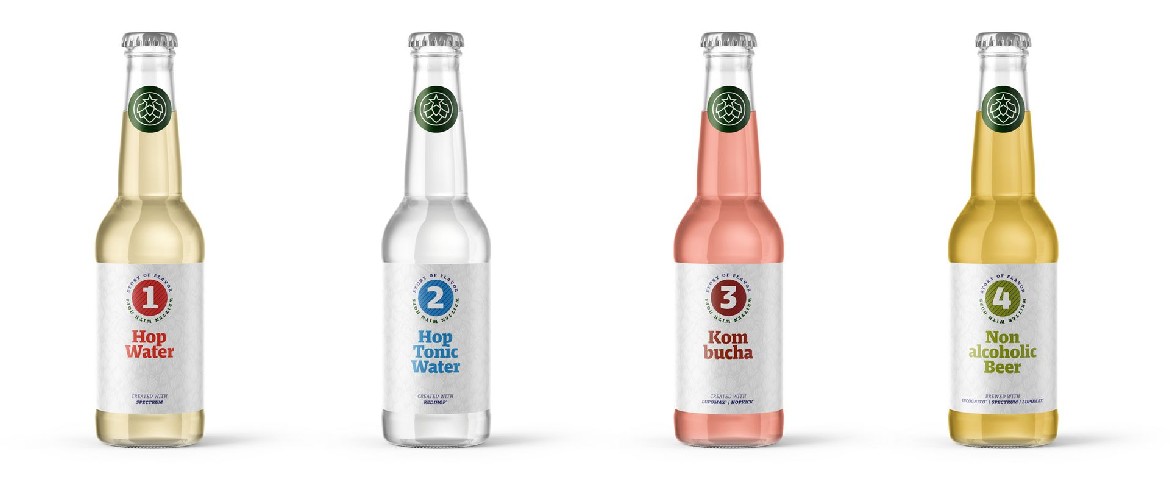In the last years, many new beverage categories have entered the market. Megatrends influence the consumer purchasing decisions. One beverage with a long history gaining popularity is Kombucha. It has a promising sales forecast. Kombucha, a fermented tea beverage, has an image of being a functional and healthy beverage.
Discovering the potential of hops
In the last decades, the craft beer trend showed us the wide range of different flavours such as Mango, Coconut, Melon, Raspberry and Pineapple, that hops can create in beer. It showed an increasing interest in hops and created a “hop hype” in the beer world. New hop products are vital part of this trend to increase the use in different parts of the brewing process and increase efficiencies in general!
Currently, hops are used mainly for the beer production. But can hops also create an appealing taste in Kombucha?
In the Concept-Brewery of BarthHaas we have asked ourselves exactly this question! In the last month we have started exploring this new world out of curiosity.
Create your own SCOBY (Symbiotic Culture of Bacteria and (Beer-) Yeast)
Every brewer knows, the yeast is essential for beer brewing and a satisfying flavour of the final beverage.
To minimize the biological risk of cross-contamination, especially for those facilities who also brew other beverages beside Kombucha, it is beneficial to create a unique culture of bacteria and yeast. For example, a beer yeast like the East Coast Ale yeast works good in symbiosis with acetic acid bacteria. Pilot tests in laboratory scale showed that a beer yeast as part of the Kombucha Culture could perform and create the best sensory results in comparison to other tested cultures.
Hops and Kombucha: The perfect Match?!
This was followed by the upscaling in pilot plant scale. The use of different kinds of hop additions as well as fine-tuning through adapted brewing parameters and processes represented this phase of the innovation process.
Tasting results showed, a positive effect of hop additions to the sensory quality of Kombucha. This result is also analytically confirmed: significant amount of fruity hop flavor compounds above threshold are measurable. Some of them derived from hops and also can increase in concentration by biotransformations during fermentation.
Endless possibilities
To conclude, the potential of hops in innovative beverages, especially in sour fermented non-alcoholic beverages is huge. Possibilities are far from being fully realized! So go for it – create your own SCOBY (Symbiotic culture of bacteria and yeast) and hop flavour - there are so many different hop varieties with unique flavours as well as many new hop products available!


